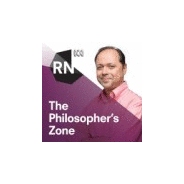In a world in which many humans do not have all their human rights fulfilled, who has what obligations to help bring a better world about? This is a question that, for many years, has exercised the mind of Thomas Pogge, Professor of Philosophy and International Affairs at Yale and Professorial Fellow at the Australian National University. This week, we talk to him about it by way of a chat about two influences on his thought: the great eighteenth century German philosopher Immanuel Kant, and one of his teachers, John Rawls, the distinguished American moral philosopher who died in 2002.

Kultur & Gesellschaft
The Philosopher's Zone - Program podcast Folgen
The Philosopher's Zone looks at the world of philosophy and at the world through philosophy. The program addresses the big philosophical questions and arguments. It also explores what philosophical analysis can contribute to our understanding of some of the fundamental and perplexing issues that face the world today.
Folgen von The Philosopher's Zone - Program podcast
132 Folgen
-
Folge vom 18.03.2012Thomas Pogge and global fairness
-
Folge vom 11.03.2012The Myth of Plato and Plato the Myth-makerThere’s been a change in the interpretation of Plato. For centuries, he was admired for his inspiration and vision, rather than for his theories and argumentation. Then the pendulum swung hard in the other direction.
-
Folge vom 04.03.2012Kafka and PhilosophyFranz Kafka—author of The Trial, in which a man is unjustly accused and tried, and Metamorphosis, in which a man becomes a giant insect—is perhaps the modernist author most often discussed by philosophers. What has been so alluring about Kafka that philosophers have a compulsion to return to his writings? This week we investigate with the help of Henry Sussman, Visiting Professor in German Language and Literature at Yale University and one of the world’s great Kafka scholars.
-
Folge vom 26.02.2012Group agentsOn this Philosopher’s Zone we’re looking at agents. Not secret agents but rather public agents: an agent is just somebody who does something for a purpose and an agent is distinguished from a patient. The agent is the person who does things and the patient is the person to whom things are done. But do we have to be talking about individual persons here or can groups of people be agents in the way that individuals can? This week, we investigate.
